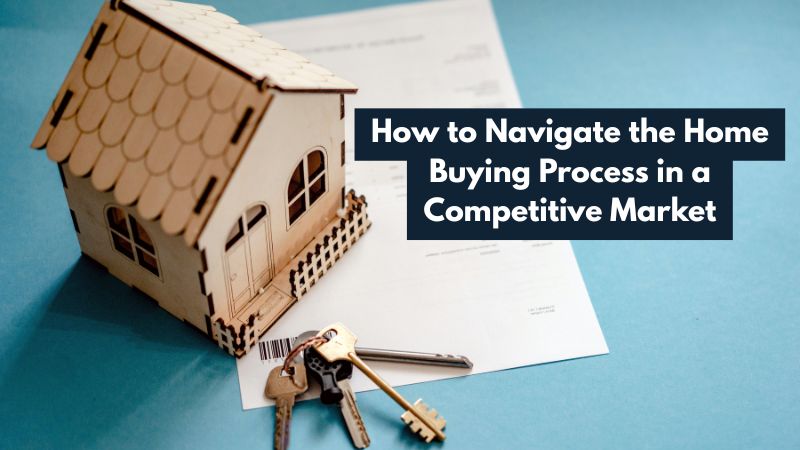Buying your first home is a thrilling experience, but it can also be overwhelming if you’re not sure where to start. Whether you’re ready to move from renting to owning or you’re simply dreaming of a place to call your own, there are several important factors to consider. Let’s walk through the key elements that can help guide your decision-making process.
1. Budgeting for Your New Home
The first step in buying your first home is determining what you can afford. It’s essential to take an honest look at your financial situation. Consider your current income, savings, and monthly expenses. A good rule of thumb is that your monthly mortgage payment should not exceed 28% of your gross monthly income.
Don’t forget about additional costs like property taxes, insurance, maintenance, and utilities. Be sure to work with a mortgage lender to get pre-approved for a loan, as this will give you a clear idea of how much you can borrow and at what interest rate.
2. Location, Location, Location
The location of your new home plays a significant role in your long-term satisfaction. You’ll want to choose a neighborhood that aligns with your lifestyle, whether that’s proximity to work, school, or recreational areas. Think about what matters most to you: Do you want to be close to public transportation, shopping, or parks?
Also, take into account the future growth of the area. Buying in a developing neighborhood could lead to increased home values over time. However, it’s important to balance this with your immediate needs. A home in a bustling city center might be more expensive than one in the suburbs but could provide more convenience.
3. Home Size and Layout
Before you start shopping around, decide how much space you need. Consider the number of bedrooms, bathrooms, and living areas. If you’re planning to start a family, you may need extra rooms for future growth. Alternatively, if you’re a single person or a couple, a smaller home might be more than enough.
Think about the layout of the house, too. Do you prefer an open-concept space or separate, defined rooms? The layout can greatly affect the flow of the home and your daily routines.
4. Condition of the Home
When viewing homes, always take the time to assess their condition. A fresh coat of paint or new flooring might make a house look appealing, but look deeper into the structural and mechanical systems. Check the age of the roof, HVAC systems, plumbing, and electrical wiring.
If you’re not familiar with home inspections, consider hiring a professional to assess the property. This will help you identify potential issues that might not be visible to the untrained eye. It’s better to know about any necessary repairs or upgrades before finalizing the purchase.
5. Future Resale Value
Even if this is your first home, it’s important to consider its potential resale value in the future. Your needs may change over time, and you may eventually want to sell the house. Look at the overall appeal of the neighborhood and the demand for homes in that area.
A home with features that are in demand, such as an updated kitchen or spacious backyard, will be easier to sell in the future. Also, think about the long-term prospects for the area. If the neighborhood is in a declining part of town, it may not be a wise investment for the future.
6. Homeowners Association (HOA)
Some homes, particularly those in planned communities or condominiums, may be governed by a homeowners association (HOA). An HOA enforces certain rules, such as how properties should be maintained and whether certain home improvements are allowed.
Before buying a home in an HOA community, make sure you understand the rules and fees associated with it. Some people appreciate the structure and maintenance that an HOA provides, while others find the restrictions limiting. Make sure you’re comfortable with the rules before making your decision.
7. Consider Your Long-Term Plans
When purchasing your first home, think about where you see yourself in the next 5-10 years. Do you plan to stay in the same area for an extended period, or is this home just a stepping stone to something bigger? If you’re unsure about your future plans, consider buying a home that will accommodate potential changes, such as a growing family or job relocation.
8. Explore Different Financing Options
There are several different ways to finance your first home. Most first-time buyers opt for a traditional mortgage, but there are many other options out there, including government-backed loans like FHA or VA loans. These types of loans often have lower down payment requirements, making them an attractive option for first-time buyers.
Explore all your options and consult with a financial advisor or mortgage lender to determine which type of loan works best for your situation. You’ll also want to shop around for the best interest rates to save money over the life of the loan.
9. Closing Costs and Additional Fees
In addition to the down payment, there are other costs associated with purchasing a home. Closing costs can include fees for inspections, title searches, and home appraisals. It’s important to budget for these expenses, which can add up to 3-5% of the home’s purchase price.
Before signing any contracts, be sure to get a full breakdown of the closing costs from your lender or real estate agent. Having this information in advance will ensure that you’re not blindsided by hidden fees.
10. Work with a Real Estate Agent
Having an experienced real estate agent by your side is essential, especially if this is your first time buying a home. A skilled agent can help you navigate the home-buying process, from finding the right property to negotiating the price.
Look for an agent who is knowledgeable about the local market and who listens to your needs and preferences. Their expertise will be invaluable when making such a significant decision.
11. Don’t Rush the Process
While the excitement of buying your first home can be overwhelming, it’s essential not to rush into the decision. Take your time to research different properties, neighborhoods, and financing options. This is one of the biggest financial commitments you’ll make in your life, so it’s worth being thorough.
Trust your instincts and don’t be afraid to walk away from a property that doesn’t feel right. Remember, your dream home is out there, and with the right planning, you’ll find it.
Conclusion
Buying your first home is a huge milestone, and by considering all the important factors, you can make a well-informed decision that meets your needs and fits your budget. Take your time to assess your finances, explore various neighborhoods, and evaluate the condition of the property. Working with professionals, such as real estate agents and mortgage lenders, will also help guide you along the way.
By doing your due diligence and not rushing the process, you’ll be well on your way to finding a home that’s just right for you. Happy house hunting!




